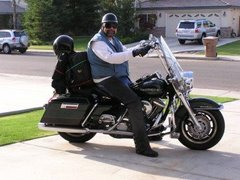Inauguration Trivia
George Washington's was the shortest inaugural address at 135 words (1793). William Harrison's was the longest at 8,445 words. (1841)
Thomas Jefferson was the only president to walk to and from the inaugural, and the first to be inaugurated at the Capitol. (1801)
The first inaugural ball was held for James Madison. (1809)
Abraham Lincoln was the first to include African-Americans in his parade. (1865)
Women were included for the first time in Woodrow Wilson's second inaugural parade. (1917)
The first president to ride in a car at his inauguration was Warren Harding. (1921)
Calvin Coolidge's inauguration was the first broadcast on radio. (1925)
The parade for Franklin Roosevelt's fourth swearing-in was canceled because of gas and lumber shortages brought on by World War II. (1945)
Harry Truman had the first televised inauguration. (1949)
John Kennedy's was the first to be televised in color. (1961)
The first poet to participate in an official inauguration ceremony was Robert Frost. (Kennedy's, 1961)
Lyndon Johnson remains the only president to be sworn in by a woman, U.S. District Judge Sarah Hughes. (1963)
Ronald Reagan's second parade was held on Super Bowl Sunday. (1985).
Bill Clinton's second inauguration was the first to be broadcast on the Internet. (1997)
George W. Bush mentioned the word 'freedom' more than 20 times in his second inaugural address. (2005)
Barack Obama will be our 44th president and his inauguration will be the 56th formal one. Fifteen presidents were elected to a second term, and Roosevelt was elected to a fourth term. (2009)
George Washington's was the shortest inaugural address at 135 words (1793). William Harrison's was the longest at 8,445 words. (1841)
Thomas Jefferson was the only president to walk to and from the inaugural, and the first to be inaugurated at the Capitol. (1801)
The first inaugural ball was held for James Madison. (1809)
Abraham Lincoln was the first to include African-Americans in his parade. (1865)
Women were included for the first time in Woodrow Wilson's second inaugural parade. (1917)
The first president to ride in a car at his inauguration was Warren Harding. (1921)
Calvin Coolidge's inauguration was the first broadcast on radio. (1925)
The parade for Franklin Roosevelt's fourth swearing-in was canceled because of gas and lumber shortages brought on by World War II. (1945)
Harry Truman had the first televised inauguration. (1949)
John Kennedy's was the first to be televised in color. (1961)
The first poet to participate in an official inauguration ceremony was Robert Frost. (Kennedy's, 1961)
Lyndon Johnson remains the only president to be sworn in by a woman, U.S. District Judge Sarah Hughes. (1963)
Ronald Reagan's second parade was held on Super Bowl Sunday. (1985).
Bill Clinton's second inauguration was the first to be broadcast on the Internet. (1997)
George W. Bush mentioned the word 'freedom' more than 20 times in his second inaugural address. (2005)
Barack Obama will be our 44th president and his inauguration will be the 56th formal one. Fifteen presidents were elected to a second term, and Roosevelt was elected to a fourth term. (2009)




